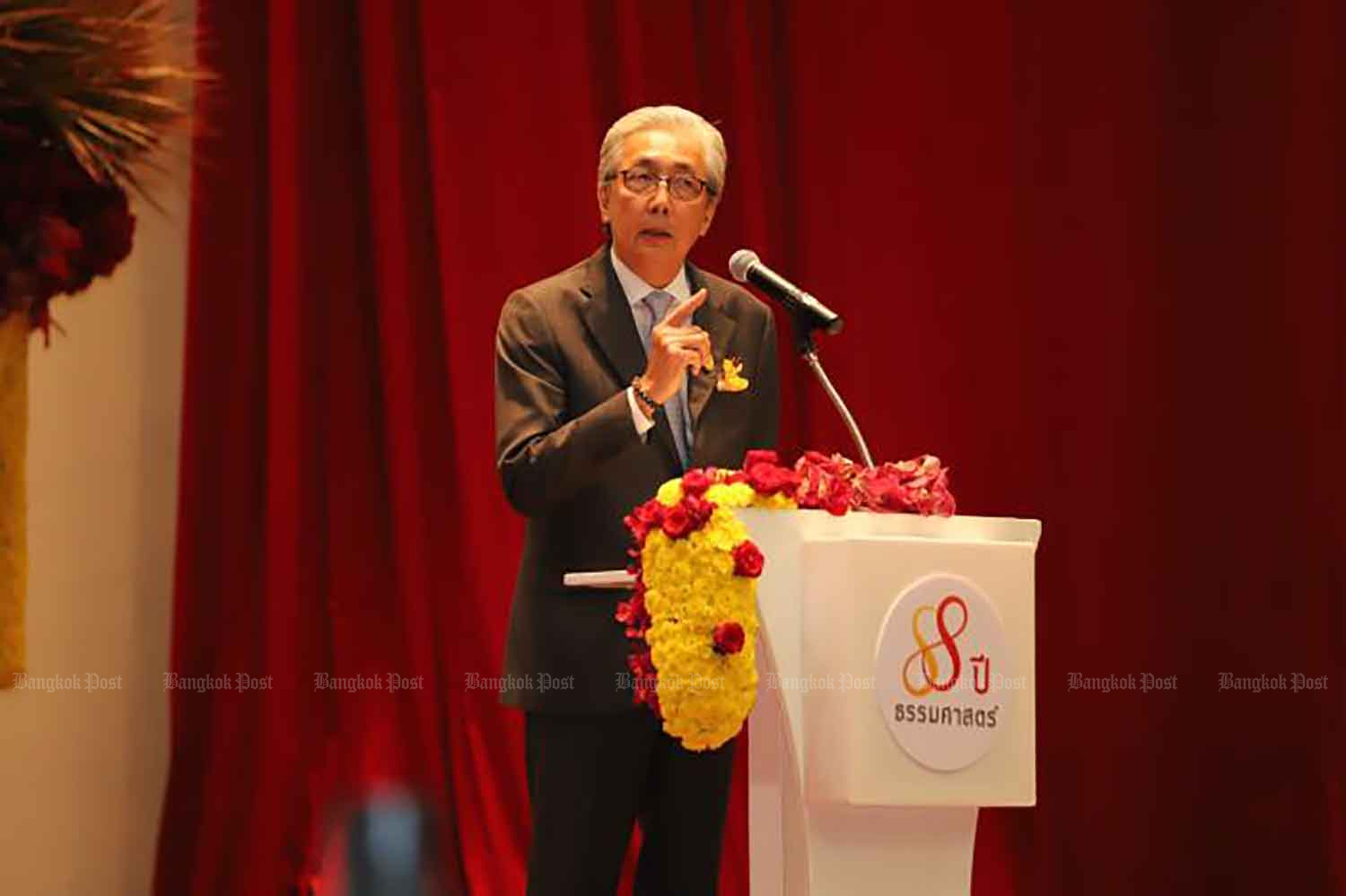
Former deputy prime minister Somkid Jatusripitak says young Thais want a democracy involving public participation, not one that follows representatives from just a few elite families.
Mr Somkid, who has reportedly accepted becoming a prime ministerial candidate of the Sang Anakhot Thai Party, made the comment during a keynote speech marking the 88th anniversary of Thammasat University on Monday.
He said he was engaged in social and political issues during his four years at Thammasat University, which inspired him to pursue public service.
He said events during the 1973-1976 student pro-democracy protests influenced Thammasat students very much and that he believed that in the current climate the public are willing and ready to hear what students have to say.
"The university was established within the context of fighting for democracy. These days many people can't believe the strange versions of democracy we follow like feeding bananas to monkeys or where 1% of the population has more wealth than 80% of the population combined.
"Did we want this in our fight for democracy? I've asked young people. They told me they want a democracy where a majority of people participate in finding solutions without conflict. A true democracy that is not controlled by certain groups or families," he said.
He said his children, who are in their teens and twenties, prefer a democracy beyond the ballot box and if they are unable to express themselves or cannot engage in decision-making, they will have no interest in the country's problems. The new generations need to be heard for the development of the country, he said.
While saying that democracy is necessary, he pointed out that political development alone is not enough to secure a better future when inequality is not properly addressed.
Citing World Economic Forum data, he said the country's competitiveness dropped by 13 points while good governance dipped by 11. If these issues are not tackled, the country will be in deep trouble, he said.
"In terms of the global economy, a huge storm is coming. The Thai economy is tied to the global economy and if we don't build internal strength and just wait for the global economy to recover, we'll lose momentum," he said.
"Ordinary people are in a tough situation and they will face greater difficulties. We must address this. But the pressing problem is economic inequality. Farmers are aware of environmental changes and workers are aware of how AI technology will affect them. If the government isn't prepared, they don't have any security," he said.
He said the country cannot afford to wait for a democratic government to solve these issues and the people must join hands because each government, especially a coalition one, has its own limitations.
According to Mr Somkid, education institutes will have to play a greater role in driving changes and solving the country's problems.
"Thammasat University can produce people who do not only fend for themselves and their families but are inspired to drive wider changes," he said.